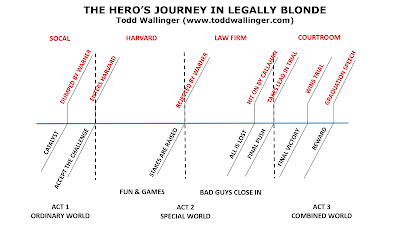I came across an article the other day that really got me thinking. Written by Anne Fadiman, it was published 25 years ago in
Civilization magazine, but it was reprinted by
Slate this week in response to a tweet that raised the hackles of book lovers everywhere.
In the tweet, the tweeter (twitterer?) posted a picture of a book he cut in half in order to make it easier to lug on trips.
Here is that photo, and if you're an avid book lover, you may want to sit down for this (graphic image follows):
Horrifying, I know. But Fadiman had something to say about it. In her article, titled "
Never Do That to a Book", she proposed there are two ways to love your books.
First, there's the courtly way, in which the reader takes pristine care of their texts, refusing to tear them, write on them or even dogear a single page.
The other way is the carnal way. Disciples of this school (and that includes Fadiman herself) don't just read books, they
consume them--and in the most literal sense possible. They scribble in the margins, throw away pages as they finish them, even--horror of horrors!--set them down spine side up.
A sign of disrespect? Not at all. Says Fadiman:
"To us, a book's words were holy, but the paper, cloth, cardboard, glue, thread, and ink that contained them were a mere vessel, and it was no sacrilege to treat them as wantonly as desire and pragmatism dictated. Hard use was a sign not of disrespect but of intimacy."
I have to admit, I've abused my share of books..When I was a kid, my dad had a collection of elegantly embossed hardcovers called the Twenty Greatest Works of Literature or something like that. He kept them out of reach on a high shelf in our rec room, but when I saw that one of them had the intoxicating title of--wait for it!--
Treasure Island--I knew I had to read it.
I climbed up on a chair, grabbed the book off the shelf and, for the rest of that summer, took it everywhere I went. Church. Summer school. Camping. Fishing.
I loved that book, and when I finally returned it to its shelf a couple months later, it stood out from the rest of the books in its sheer
usedness. The cover was faded. The corners were bumped. The edges were threadbare. And I think it got some fairly significant water damage from that fishing trip.
Sure, it was ugly. But it was the only book from that collection that ever got read.
Anyone who has seen or performed in my play
The Enchanted Bookshop knows that Miss Margie, the owner of the ship, belongs firmly in the courtly camp. She scolds the bad guys, Eddie and Fingers, when they toss her books on the floor. And so, when it comes time for them to punish her, they know how to make it hurt:
EDDIE: This ain't the necklace we was looking for. What happened to the real necklace?
MARGIE: I don't know! I never had it!
EDDIE: Tryin' to pull a fast one, are ya? Well, we'll see about that. Fingers?
FINGERS: What books should I start with?
EDDIE: I don't care. Just pick one.
FINGERS: (
Grabs a real book from the shelf.) How about Mary Poppins?
EDDIE: Whatever. (
FINGERS tears pages out of the book.)
MARGIE: No! Stop!
EDDIE: Are you gonna tell us where the real necklace is?
MARGIE: I already told you! I don't know where it is!
EDDIE: All right, Fingers. Pick another book.
FINGERS: (
Grabs another book.) This one's got a funny name.
Don Quicksoddy. (
Tears pages out of the book.)
MARGIE: Stop! I'll give you all my money! Just please don't hurt my books!
You know, it's funny. I've seen dozens of productions of this play--both live and on video--and not a single one had the bad guys actually tear the pages from the book. They usually just mime the tearing, or toss the books gently on the floor without tearing them all.
I get it. My plays are primarily directed by teachers and I suspect that most teachers are lifelong members of Team Courtly. I mean, they have to be. The books in their rooms get handled by dozens of hands a year, and if they didn't enforce some level of care, within a couple years, there wouldn't be any books left.
In my play, however, I think it's really important to damage the books. It has to be visceral. The audience should feel the tearing of the pages like a gut punch, and in that way, they'll realize how precious books are.
But what if you really, really don't want to damage any books? Well, there is one way around it. Stick some loose pages inside the books ahead of time, then when it comes times to destroy them, pull out those pages and toss them on the floor. The audience will never know it was faked.
Or maybe you can talk your local library into donating some damaged books that are otherwise headed for the recycler.
These days, I take better care of my books. Maybe it's a result of getting older, but my current view is that we never really own our books. We just borrow them. The best of our books will last much longer than we do, and we owe it to those who follow to leave at least a few of the literary treasures we loved so much.
But those trashy little paperbacks? Do what you want with them.
I won't tell Margie.





























